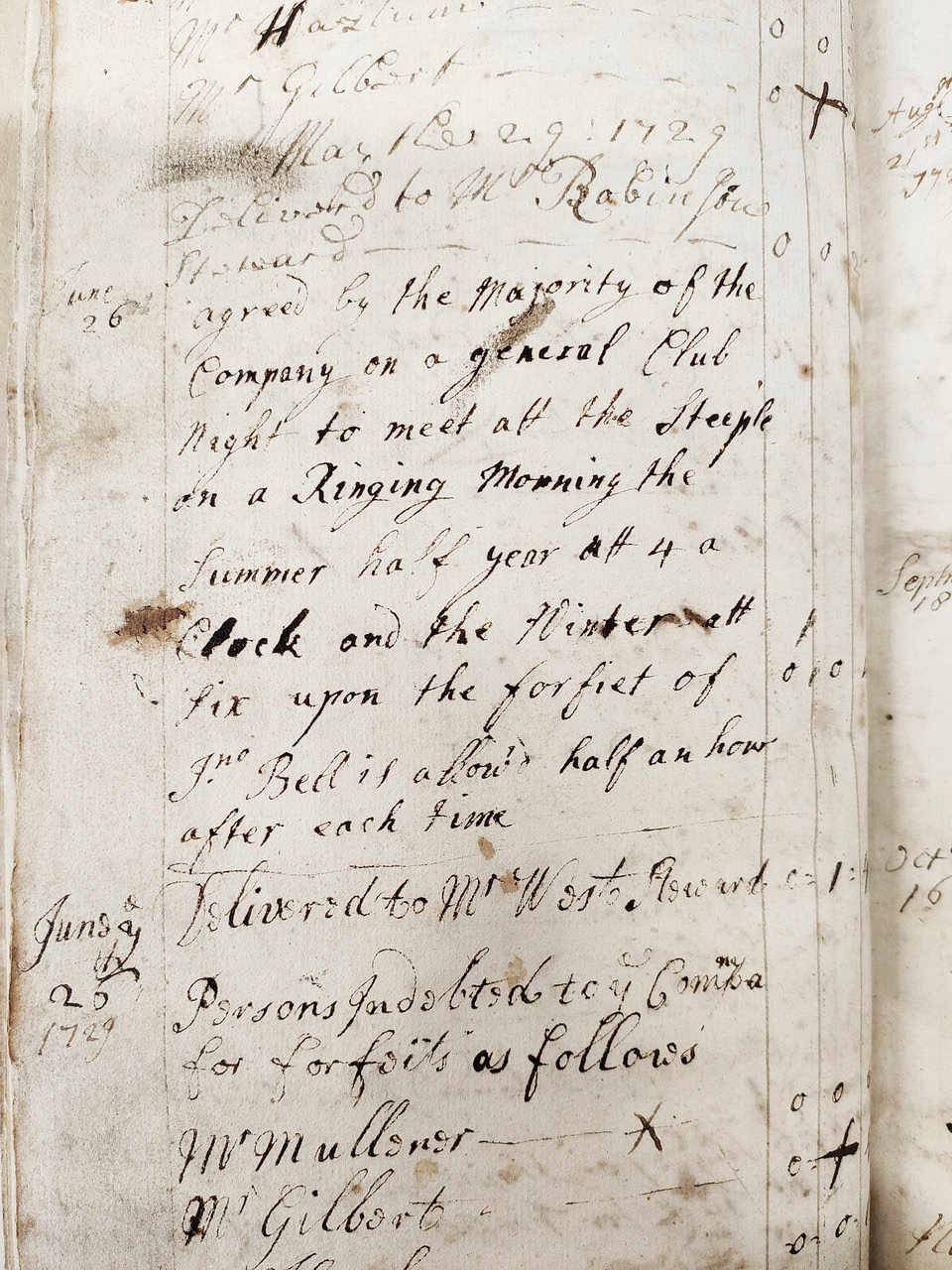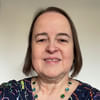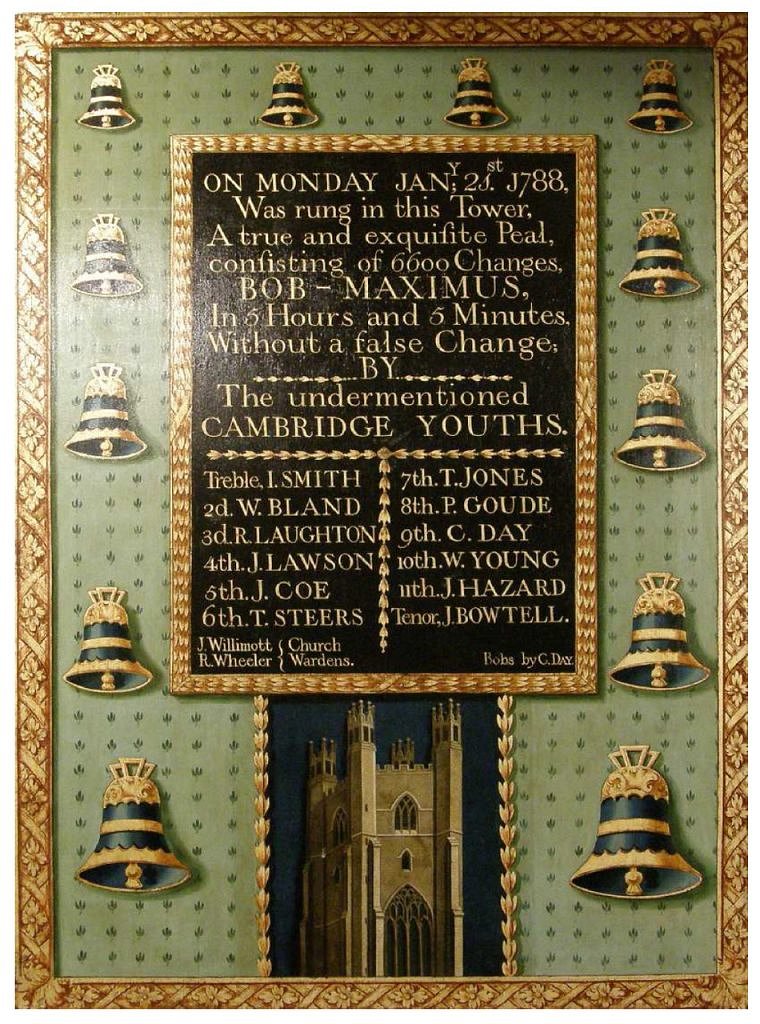|
In this podcast, historian Gareth Davies challenges everything you ever thought about the history of bell ringing in one of host Cathy Booth’s most engaging interviews yet. At times, Gareth makes being an 18th century ringer sound like everyone’s dream job. Fancy being paid £80,000 a year, enjoying a free tab at the pub paid for by the parish council and getting pension support in your old age? However, once you learn about the six o’clock starts, the fines for a no-show and the ringing room chamber pot you might well change your mind! This brilliant romp through the history of the Cambridge ringers is full to bursting with fascinating facts, eye-opening insights and colourful real-life characters. And as for bell ringers smoking, swearing and being drunk? Well, maybe some things never change ... |
Restored 1788 peal board at |

One of a page dated 1729 from the first account book of the Society of Cambridge Youths,
recording decision to ring at 4am during the summer and 6am in the winter
(this was for about 6 annual parish occasions, not all ringing).
Top 5 takeaways
- Why not visit your local record office and see what you can find out about the history of ringing in your area
- If you’re struggling with your ringing technique, don’t give up! With hard work and enthusiasm it’s possible to develop from a ‘jelly fish on a piece of elastic’ to being the master for the winning band of the 12 bell striking competition
- Look after your own tower’s historic records so that historians in the future can see the part that ringing played in our culture today
- If in doubt, just ring first and ask for the money afterwards
- Look out for Gareth’s new book.
Comments on this episode from our legacy website:
Catherine Elliott( nee Mills): (2023) - This was a really interesting podcast. In fact I learnt to ring in Danbury at the same time as Gareth and he was certainly not a slow learner! It was great to hear him say Danbury was his favourite tower. His teachers would be very proud of him.
Roger Booth: (2020) - As Gareth mentioned, in the past Churches had many civic roles, in addition to their religious ones. The buildings were the centre of the local community, so the bells were used for many other purposes, in addition to their religious ones. Hence why during the 17th, 18th and 19th centuries, the development of change-ringing led to many churches increasing the number of bells in their towers. This work was paid for by the wider community in order to enable change-ringing, as local communities were proud of and fiercely competitive about their bells and their ringers.
Simon Burren: (2020) - I really enjoyed this interesting podcast however since we are told that the bells were not rung for religious reasons and anyway they and the tower are the property of the Church I was left wondering why the band had free range to ring several times a week and for substantial payment.
Helen Pettet: (2020) - Fascinating insight into early ringing.
Sponsor: This podcast is sponsored by the Association of Ringing Teachers (ART). To find out more about learning to ring, learning to teach or other resources to support your ringing go to bellringing.org.








